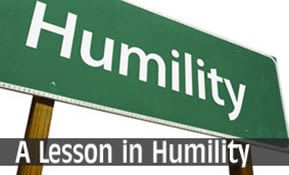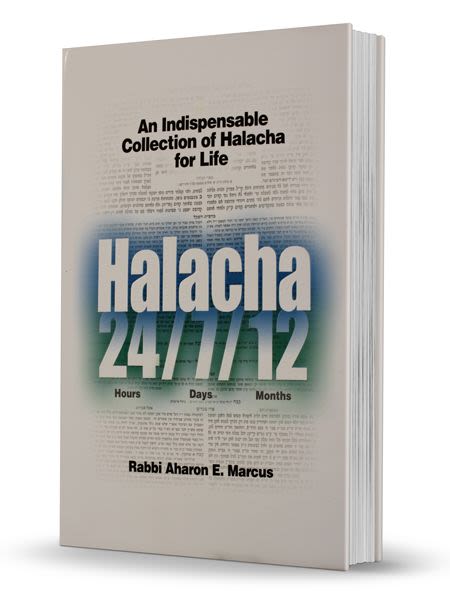
Mishpatim: Nowhere to Hide
If the Torah tells the lowest individual - the slave – how to govern his affairs, then the Torah has some great advice for the rest of us, too.

Translated by Yehoshua Jacobson
Parshat Mishpatim
Sruly was a true free spirit; he could not bear the thought of being confined to any system or bound to any responsibility. The majority of his time he spent inside his imagination, it was there that he amassed his wealth, made a great living and lacked nothing. The big problem was that he also had a family, which was something that actually existed in reality. Caring people tried to help out somewhat, the daring amongst them even tried to arrange some work for Sruly, but whatever they managed to find him, at best would only last a few days.
Sruly was neither foolish nor ignorant of his issue; he did have a great desire to stabilize his untamable spirit. He was not free of the worries of parnassah and the worry of falling into debt did not evade him either, but what could he do, there was nothing that he despised more and nothing more frightening to him than accepting upon himself the burden of any yoke. The business managers that he had met with throughout the years found him to be bright, sharp and of good character, yet somehow when it came down to the practical things like being on time and keeping a schedule, Sruly was nowhere to be found.
The suggestion that came his way one morning after Shacharis, was utterly surprising. The esteemed businessman and manager of The National Bank offered Sruly to try out the position of being his personal assistant. “You won’t have too much work” he said, “and there are no real fixed working hours. You’ll only have to worry about a few small things and other than that you’re free” he added. “Wow, such a position I never even dreamed of”, thought Sruly as he rubbed his hands together in excitement – “a prestigious position, a great salary… and to be free!”
The following days were like a dream come true. Sruly danced his way to the bank and fulfilled his job with joy and satisfaction, and when the bank manager suggested at the end of the month that he take the position indefinitely, Sruly was overjoyed.
It was only later that night, when his pride subsided and his clarity returned that suddenly the manager’s words floated to the forefront of his mind: “Don’t forget,” he said with an authoritative glare “from today you are an official staff member, your dress code should match appropriately.” After a short silence he added “and a schedule of course.” That night Sruly hardly slept.
The next morning Sruly sat at his desk staring at the employment contract in his hands. The paper fluttered between his trembling fingers as his beady eyes glared with fear at the many paragraphs. The contract was official and precise, fitting for ‘The National Bank.’ His heart throbbed powerfully, he dropped the piece of paper and buried his head in his hands as a heavy sigh rippled through his body, “Oy, what have I got myself into, my freedom is gone, my life is over!” Just then there was a light knock on the door, Sruly looked up and standing in the doorway was the bank’s secretary with a large pile of documents in his hands…
The following days were heavily laden with activities and only at the end of the week, when he finally had some time to think clearly, he looked back upon the days that had passed and suddenly he felt a feeling of tremendous accomplishment. “Yes, this is exactly what I needed” he said to himself, “until now I thought I was free, but now I have accomplished something – I can do it, this is true freedom, this is life!”
* * *
This week we have great expectations. We ended last week’s Parsha amidst the awesome standing of the giving of the Torah. Thunderous voices and lightning, a gathering filled with splendor, holiness and purity. And so we surely expect to continue with something no less grand and exalted. This is where we stand to be greatly surprised…
Suddenly the Torah begins to discuss all sorts of details; commandments, mandates and laws regarding monetary matters and damages. Worst of all – ‘The Hebrew slave’ – what connection does all this have to such a lofty and holy event as the giving of the Torah?
Let us picture this a little more vividly. The Jewish people leave Egypt, but not before all the laws of nature are shattered before the eyes of every individual. The sea splits and they pass through it on dry land. Their lives are more spiritual than physical, they tread upon the clouds of glory, perceiving Hashem’s greatness more and more with every moment, their clothes grow together with them and they eat only bread from heaven. Then, at the foot of Har Sinai they are commanded to completely shed the limitations of physicality and to prepare themselves in holiness for three days. A spirit of purity fills the entire surroundings and everything seems to be uplifted.
Finally the great day arrives; only through a miracle do their souls not burst out of the confines of their bodies. The mountain is covered with smoke; thunder and lightning – a level of awe and trepidation completely out of this world. They see the sounds and smell the scent of Gan Eiden. Their ears hear the voice of The Creator and at the end, when they can no longer withstand the intensity, the last strand that binds their souls to their bodies is broken and the angels begin to sprinkle the Tal (dew) that revives the dead. Then, just as the physical world has been completely left behind, they begin to hear the most extremely foreign concepts: ‘One who strikes his father or mother … One who kidnaps a man and sells him…’ (Shmos 21). What happened! Where did all the holiness go? Who is dreaming about such things? Who would even think of doing such lowly things? The Torah is holy – how do such lowly and physical concepts get in here? Were we not commanded just a few days ago to completely leave physicality behind, to become holy? All of a sudden we are not only being returned to physicality but to the lowliest coarseness…
Yes, we heard correctly, this is the receiving of the Torah. Although the Torah comes from heaven, if Hashem had wanted to leave it up there He would not have needed to shake up the whole world for it. If the Torah was intended for the angels we would have had no need to stand at the foot of Har Sinai. The Torah was written in order to enter into the boundaries of physicality, and until it has penetrated to the lowest place in the world, it has still not been properly accepted.
When the Rebbe explains the opening verse of this week’s parsha (L.M 7), he teaches that the Torah was given in order to bring emunah into every aspect of life. The gallus (exile) of Mitzrayim was itself a lack of emunah, and when one lacks emunah, his life is bound into exile. It is the holy Torah that is able to redeem the soul from its exile and until the Torah has penetrated into every aspect of life, we have not completely received it. This means that the receiving of the Torah IS the acceptance of the light of emunah in every place and in every situation.
This is why specifically at the height of the giving of the Torah it was most appropriate to tell us about ‘the Hebrew slave.’ It is just then, that it was of utmost importance to the Torah that we know that there is such a situation as a Hebrew slave, and that the Torah speaks about that too. Now, one will never be able to say: ‘the  Torah is too lofty and spiritual for me.’ Since if the Torah specifies how a Hebrew slave, who has fallen so low that he is permitted to marry a non-Jewish maidservant, must act, then there is surely something here that is relevant to us too.
Torah is too lofty and spiritual for me.’ Since if the Torah specifies how a Hebrew slave, who has fallen so low that he is permitted to marry a non-Jewish maidservant, must act, then there is surely something here that is relevant to us too.
When we stood ready to receive the Torah we thought that on top of all we have in our lives we will receive another detail, something higher and loftier. We quickly discovered the truth … the Torah envelopes our entire being, resting upon every fine detail of life, even the things we never thought of. The Torah pays attention to every little thing; it is even concerned with how we dress.
That’s it! There is nowhere to hide.
But then the great understanding comes, that in truth, I don’t want to run away. How wonderful it is to be connected in every fine detail to the purpose. How fantastic it is to be attached and bound to Hashem, and how great it is to discover that He is interested in me. He is interested in what I think, in what I eat, how I speak and even how I do business. The Torah was given to us in order to make life holy. Our greatest challenge occurs specifically with the smaller things, these are the things to which we generally give no importance. But the Torah asks of us to be holy, and to connect EVERYTHING to the great joy and ultimate purpose.
* * *
Courtesy of the Gates of Emunah Weekly Publication










Tell us what you think!
Thank you for your comment!
It will be published after approval by the Editor.